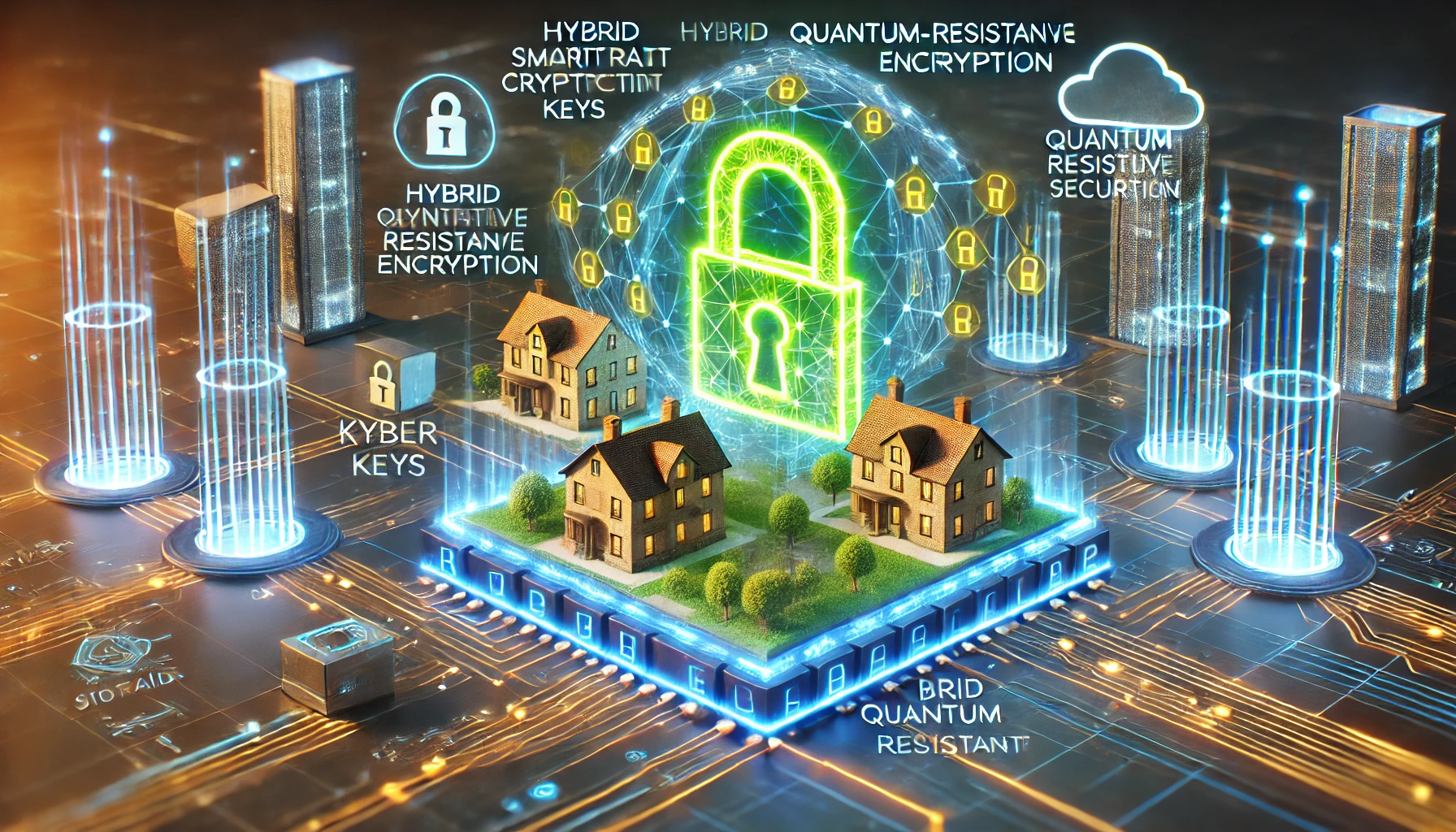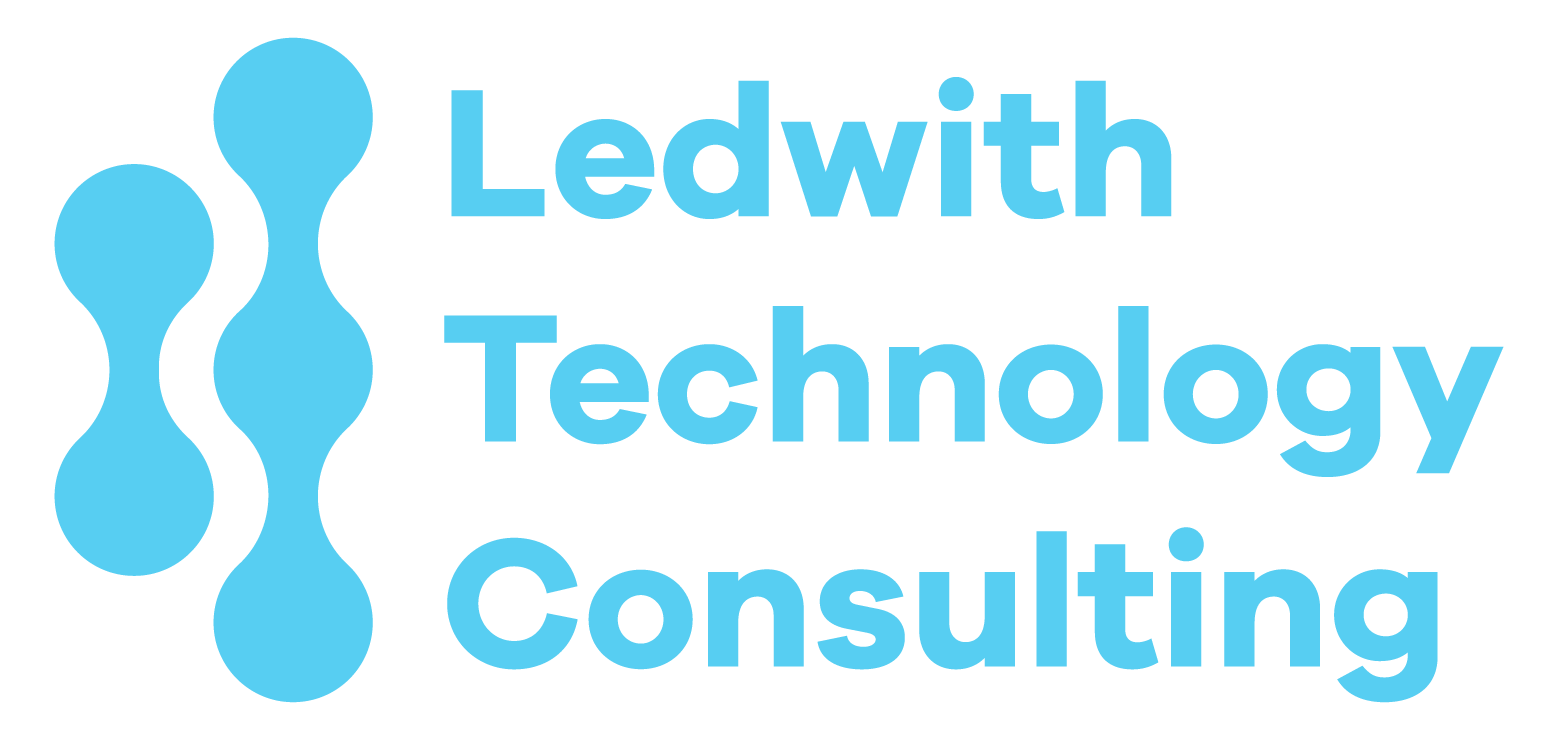By Stephen Ledwith May 8, 2025
The Relative Urgency of Quantum-Safe Cryptography
Quantum computing is advancing at an unprecedented pace. Once quantum machines reach full-scale power, they could break traditional encryption methods, exposing sensitive business data, financial transactions, and real estate records.
🔹 Key Insight:
“Hybrid quantum-resistant cryptography is the safest way for businesses to transition without disrupting operations.”
Real estate firms, financial service providers, and small businesses must begin implementing quantum-resistant cryptography now—but without abandoning existing security measures overnight. The answer? Hybrid cryptography.
What is Hybrid Quantum-Resistant Cryptography?
Hybrid cryptography combines current encryption methods (like RSA or ECC) with post-quantum cryptographic algorithms (PQC) to create a layered security approach.
📌 Why does this matter?
✅ Ensures business continuity—No need to replace all existing encryption overnight.
✅ Reduces risk—Data is protected even if classical cryptography is compromised.
✅ Prepares for quantum threats—Businesses will be ready for future security standards.
According to Dr. Vadim Lyubashevsky, cryptographer at IBM Research,
“Hybrid cryptography is the bridge that will take businesses safely into the post-quantum era without major disruptions.”

How to Implement Hybrid Quantum-Resistant Cryptography
1️⃣ Assess Your Current Cryptographic Systems
Start by identifying where encryption is currently used in your business:
🔹 Checklist:
✅ Financial transactions (credit card processing, mortgage documents).
✅ Secure communication (email encryption, messaging apps).
✅ Cloud storage & backups (Google Drive, Dropbox, AWS S3).
✅ Customer & employee data (PII, legal documents, tax records).
✅ Smart contracts & blockchain transactions (for real estate transactions).
📌 Helpful Resource:
🔗 NIST Cybersecurity Framework – A structured approach to assessing encryption security.
2️⃣ Adopt Hybrid TLS for Secure Web Transactions
Transport Layer Security (TLS) protects websites and online transactions. Most businesses use TLS 1.2 or 1.3, but these protocols rely on classical encryption, which quantum computers could eventually break.
🔹 Action Steps:
✅ Upgrade to Hybrid TLS (TLS 1.3 with quantum-safe key exchange).
✅ Implement Kyber + AES-GCM encryption (Kyber is a leading post-quantum algorithm).
✅ Ensure your website and payment gateways are updated for hybrid encryption.
📌 Helpful Resource:
🔗 Cloudflare’s Guide to Post-Quantum TLS – Learn how to integrate quantum-resistant TLS.
3️⃣ Use Hybrid Encryption for Email and Communication Security
Emails and business communications contain sensitive data. Real estate contracts, lease agreements, and customer financial details must be encrypted.
🔹 Action Steps:
✅ Enable Post-Quantum Hybrid PGP (Pretty Good Privacy) Encryption for email.
✅ Implement S/MIME with Kyber or Dilithium for secure digital signatures.
✅ Use end-to-end encrypted messaging apps with hybrid cryptography.
📌 Helpful Resource:
🔗 ProtonMail’s Quantum-Resistant Cryptography – Secure email solutions with hybrid encryption.
4️⃣ Upgrade Smart Contracts & Blockchain Security
Real estate transactions increasingly use blockchain-based smart contracts. However, traditional blockchain encryption (ECC-based) is not quantum-safe.
🔹 Action Steps:
✅ Transition to hybrid blockchain security using Falcon or Dilithium for digital signatures.
✅ Choose quantum-resistant key management systems for wallet security.
✅ Work with blockchain platforms integrating PQC solutions.
📌 Helpful Resource:
🔗 NIST Post-Quantum Cryptography Project – Learn about PQC standards for blockchain.
5️⃣ Implement Hybrid Encryption for Cloud Storage & Backups
Your cloud-based real estate transaction records, client databases, and business-sensitive documents must be quantum-safe.
🔹 Action Steps:
✅ Encrypt all cloud data using AES-256 + Kyber hybrid encryption.
✅ Store private keys in a quantum-resistant key vault.
✅ Ensure backup solutions support hybrid cryptography.
📌 Helpful Resource:
🔗 Google’s Post-Quantum Encryption Guide – How Google Cloud is adopting hybrid encryption.
6️⃣ Train Employees & IT Teams on Quantum-Safe Practices
Security isn’t just about technology—it’s also about people.
🔹 Action Steps:
✅ Educate staff on hybrid cryptography basics and why it matters.
✅ Conduct training on identifying encryption weaknesses.
✅ Work with cybersecurity partners for quantum-readiness assessments.
📌 Helpful Resource:
🔗 IBM’s Quantum-Safe Training – Training resources for businesses.
Conclusion: Future-Proof Your Business with Hybrid Cryptography
Hybrid quantum-resistant cryptography is the best way to transition securely without disrupting business operations.
🔹 “Businesses that implement hybrid cryptography today will be prepared for the quantum future tomorrow.” – Dr. Lily Chen, NIST Cryptography Researcher.
✅ Next Steps for Real Estate Firms & Small Businesses
- 🔍 Assess current encryption practices.
- 🔒 Upgrade to Hybrid TLS for web transactions.
- 📩 Secure email & communications with hybrid encryption.
- 🏡 Implement quantum-resistant smart contracts for real estate.
- ☁️ Encrypt cloud storage & backups using hybrid cryptography.
- 👥 Train teams on quantum-safe security.
By making smart security choices today, businesses will avoid risks and stay ahead of quantum cyber threats.

